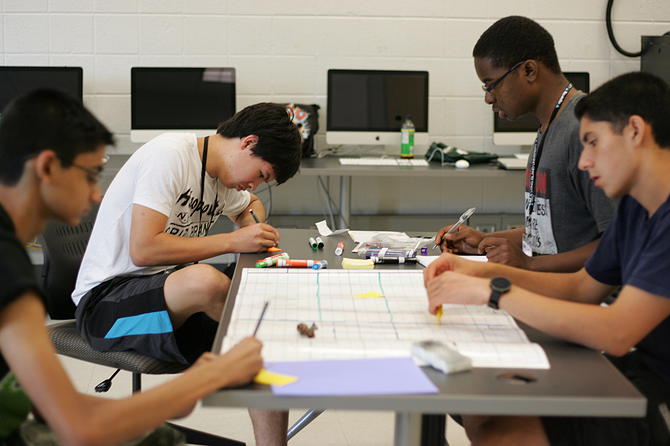By Alec Matuszak
Staff Writer
Some college students might find video games a distraction from their academic work. This is not true, however, for LIU Post’s game design majors. For them, video games are a part of their academic work.
An undergraduate game design major has been added for the first time this semester. Director of the Digital Game Design and Development program, Ramiro Corbetta, will help guide undergraduate students through the various stages of game development. Corbetta starts with the basics. Before learning how to create a digital game, students must grasp how to create a physical board game and other non-digital games. “The idea there is to teach the core ideas behind game design,” Corbetta said.

Since there are many different types of games, and many different facets of game design, students are required to take computer science courses to make sure they have a “good, basic grasp of programming” as well a few digital design, and audio design courses. “The idea is that we are teaching a really wide range of what it means to make games,” Corbetta said.
Corbetta became interested in game design while he was attending Columbia University. He made the decision to take a semester off to work for a game company, and found a job in game design after college. Corbetta is the designer of the game Sportsfriends, available for download on the Sony Playstation Store and Steam.
Creating any type of game can be a long, and sometimes confusing process. Professor of Digital Game Design, Andy Wallace, who joined the faculty this month, also intends to teach the basics, but stresses the importance of students “getting their hands dirty.” Wallace believes that the process of creating a digital game, from a concept to a playable piece of art, is just as important. “For many of the people in the class, this will be the first time that the idea of creating their own game moves from theory to reality,” he said.
Once students have a general understanding of the basics of what it takes to make a game, he or she can then choose to delve deeper into his or her specialty.
Although Corbetta realizes that certain game designers will focus on their strengths, he believes game designers will start becoming more “polymath” and become proficient in many areas. To get a job, however, Corbetta believes students should “go after the thing that you care about instead of doing something that will get you a job.”
Video games may be used as a stress reliever for children and adults alike after a long day, but that does not mean the job of creating one is without stress. “When you’re making a game, it is very exciting early on, it’s all new ideas and new concepts. The second half of making a game is much more painful,” said Corbetta. “There is this feeling that you’re almost done, and it keeps going and going.” Despite the hurdles and times of uncertainty, Corbetta stressed that perseverance is essential.
The new undergraduate major has piqued the interest of LIU Post junior Graphic Design major, and gamer Daniel Karout. “So many people love video games. They can study and learn what goes into creating games,” he said.




Be First to Comment